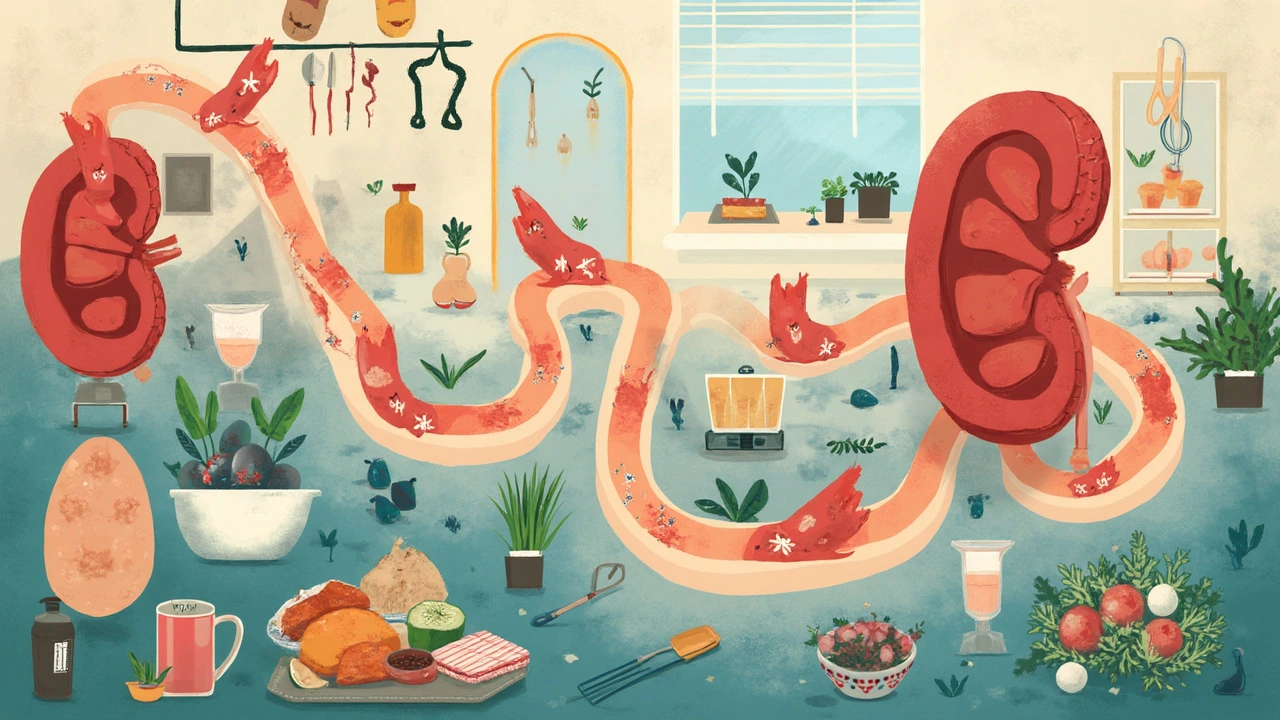Health Risks: Spotting Side Effects, Interactions & Safety Tips
Ever taken a pill and wondered if it could do more harm than good? You’re not alone. Understanding health risks is the first step to protecting yourself when you use prescription drugs, over‑the‑counter meds, or dietary supplements. This guide breaks down the most common dangers and shows you practical ways to stay safe.
Common Medication Risks You Should Know
Prescription drugs like Ativan (lorazepam) and Clozaril (clozapine) are powerful tools, but they also carry serious side effects. Ativan can cause drowsiness, memory gaps, and dependence if used long‑term. Clozaril may lead to low white‑blood‑cell counts, which can be life‑threatening without regular blood monitoring. Even everyday meds such as Prilosec (omeprazole) aren’t risk‑free; long‑term use can increase infection risk and affect bone health.
When you buy meds online, the biggest health risk is counterfeit or sub‑standard products. Always verify that the pharmacy is licensed, checks your prescription, and offers a clear privacy policy. Cheap prices are tempting, but a fake pill can cause organ damage or fail to treat your condition.
Supplement Safety: What to Watch Out For
Supplements like Manaca (Brunfelsia) and Gymnema look natural, yet they can interact with prescription drugs or cause unexpected side effects. Manaca may affect blood pressure and mood, while Gymnema can lower blood sugar and interfere with diabetes medication. The lack of strict regulation means label claims aren’t always reliable.
Before you start any supplement, check the active ingredients, recommended dose, and any warnings about pregnancy, allergies, or existing conditions. A quick search on reputable sites or a chat with your pharmacist can prevent nasty surprises.
Here’s a simple checklist you can use every time you consider a new product:
- Is the product from a reputable brand or pharmacy?
- Does it require a prescription or doctor’s approval?
- What are the known side effects and drug‑interaction warnings?
- Do you have any health conditions that could be affected?
- Is the dosage clearly stated and within safe limits?
Follow these steps and you’ll catch most red flags before they become health problems.
Another practical tip: keep an up‑to‑date medication list. Write down every prescription, OTC drug, and supplement you take, along with the dose and timing. Share this list with every healthcare provider you see. It helps doctors spot dangerous combos—like mixing an SSRI antidepressant with certain pain relievers—or catch duplicate therapy.
If you ever notice new symptoms—headaches, rash, unusual tiredness—don’t dismiss them as “just stress.” Report them to your doctor right away. Early detection can prevent a minor side effect from turning into a serious condition.
Remember, health risks aren’t a reason to avoid medication; they’re a reason to be informed. By reading labels, verifying sources, and staying in touch with professionals, you can enjoy the benefits of modern medicine without unnecessary danger.
Got a specific drug or supplement you’re curious about? Shoot us a question in the comments or reach out through our contact page. We’ll help you sort through the facts and keep you on the safe side.
Salmonella's Connection to Kidney Disease: What You Need to Know
Mar, 10 2025
Salmonella, a common cause of foodborne illness, can have unexpected impacts on kidney health. While most associate salmonella with upset stomachs, recurring infections may increase the risk of kidney disease. Understanding this connection is key to preventing serious health issues. Safe food handling and awareness could play significant roles in protecting kidney health. Delving into these aspects helps reveal the unseen links between diet, bacteria, and disease.
Read Article→
